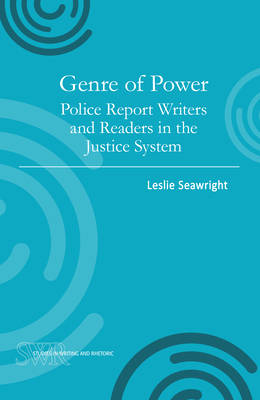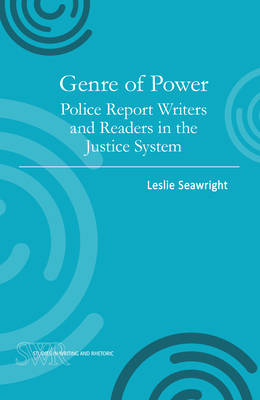
- Afhalen na 1 uur in een winkel met voorraad
- Gratis thuislevering in België vanaf € 30
- Ruim aanbod met 7 miljoen producten
- Afhalen na 1 uur in een winkel met voorraad
- Gratis thuislevering in België vanaf € 30
- Ruim aanbod met 7 miljoen producten
Omschrijving
The issues of how police officers write reports and how others read those reports have critical implications for people engaged in rhetoric, literacy studies, and critical pedagogy.
Leslie Seawright describes the journey of a police report as it travels through the criminal justice system. Tracing the path of a police report from writer, to supervisor, to prosecutor, to defense lawyer, to judge, this study exposes the way in which power, agency, and authority circulate and accrue between writers and readers. The chained literacy event, created as a report moves through the system, is highlighted and its hierarchical nature examined. The book ultimately addresses the constraints of the police report genre and seeks to expose the complex and multifaceted rhetorical situation of report writing.
Due to her position as a police officer's wife, Seawright was granted access to perspectives and realities of police writing typically reserved for those inside the police profession. Seawright obtained candid interviews and perspectives from police officers and supervisors, lawyers and judges. This book analyzes the writing and reading process of the officer writing the report and the report's subsequent readers.
Interlaced throughout the book are micro-chapters that offer glimpses into the day-to-day job of police officers. These vignettes, combined with Seawright's description of her own life as wife and scholar, present a compelling picture of the complexity of police writing. This study challenges the idea that arhetorical and objective documents are possible to create in many organizations.
Specificaties
Betrokkenen
- Auteur(s):
- Uitgeverij:
Inhoud
- Aantal bladzijden:
- 121
- Taal:
- Engels
- Reeks:
Eigenschappen
- Productcode (EAN):
- 9780814118429
- Verschijningsdatum:
- 4/09/2017
- Uitvoering:
- Paperback
- Formaat:
- Trade paperback (VS)
- Afmetingen:
- 211 mm x 140 mm
- Gewicht:
- 217 g

Alleen bij Standaard Boekhandel
Beoordelingen
We publiceren alleen reviews die voldoen aan de voorwaarden voor reviews. Bekijk onze voorwaarden voor reviews.











